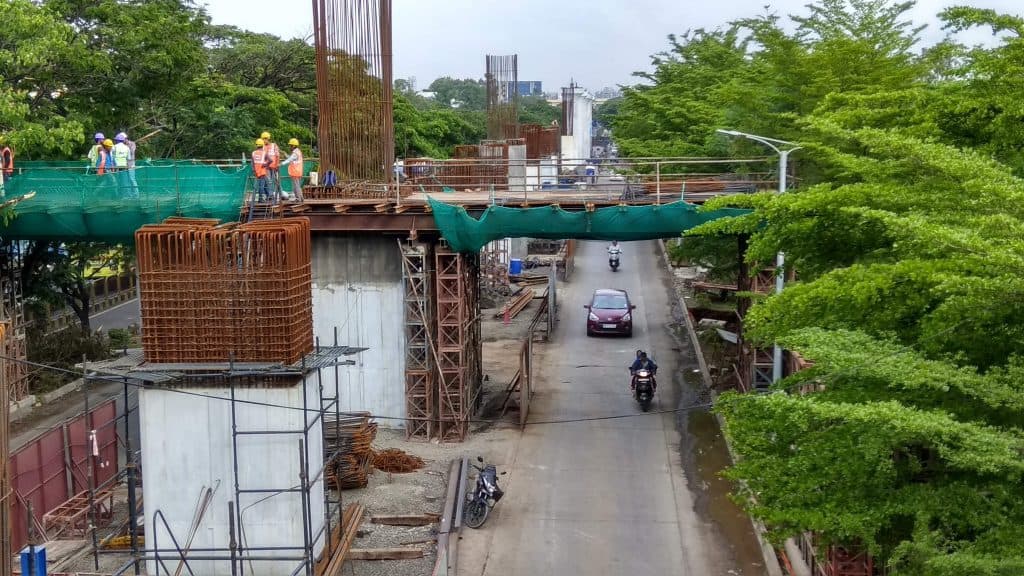Vaccination numbers continue to dip
As states struggle with a shortage of vaccine supply, vaccination numbers across the country continue to drop and remained under 20 lakh for the sixth consecutive day this week. On 20th May, 92 districts reported zero vaccination. The Centre has once again reassured states that vaccine supply is being ramped up but will take some time before it becomes a smoother process. The government is expecting the drive to pick up from July, while the entire adult population, which would need 188 crore doses approximately, may be expected to be vaccinated only by the year-end. Delhi, Maharashtra, Assam, J&K, Tamil Nadu have officially reported the problem of vaccine shortage.
Meanwhile, the National Expert Group on Vaccine Administration for COVID-19 set up by the government has come up with some new recommendations that have been accepted by the Union Ministry of Health and Family Welfare. This includes deferral of vaccination by three months after clinical recovery from COVID. The panel also recommended vaccination for all lactating women, but discontinued screening of vaccine recipients by Rapid Antigen Test (RAT) prior to vaccination.
Source: The Times of India | CNBC
Read more: COVID vaccination: Expert agrees with ‘First dose fast’ policy
Black fungus to be declared as epidemic, new guidelines by Centre
As India fights the second wave of COVID, health workers are now facing the new medical challenge of rising black fungus cases (also known as mucormycosis). Several states have reported high incidence of black fungus cases. The Union Health Ministry has urged all the states and UTs to declare it as an epidemic. Health experts observe that the infection has been occurring as a post COVID complication and normally after 10 to 15 days of recovery. Diabetic patients remain at larger risk. In some cases, removal of the jaw or eye has been the last resort to save the life.
In this background, the health ministry has issued a new set of guidelines for monitoring the cases of black fungus in COVID care wards. The new guidelines call out for identification of high-risk patients. Patients with high diabetes and on steroids, patients on immunosuppressants or undergoing anti-cancer treatment, patients on oxygen support, serious COVID cases and others have been classified as high-risk patients.
Read more: “Need a national registry on Black Fungus” – Dr Anant Bhan
The health ministry has listed nasal blockage, head/eye pain, double vision, facial numbness, difficulty in chewing, redness of eyes as key symptoms and have urged caretakers to keep a lookout for these.
Source: BBC | The Indian Express

New guidelines on aerosol transmission by health ministry
In a new finding, the government has cautioned the people about transmission of Coronavirus through aerosols which can travel up to 10 metres. The guidelines, therefore, advise maintenance of proper social distancing in offices, malls etc. and use measures such as roof ventilation systems and gable fan systems. The advisory further notes that discharge of saliva and nasal droplets are the main source of virus transmission. It further clarifies that these droplets often fall on regular surfaces like door knobs, handles, tables, chairs, switches which need to be disinfected on a routine basis. The use of N95 masks has been stressed.
Source: The Indian Express
New guidelines for international travelers
The health ministry in consultation with the Ministry of Civil Aviation has issued a new set of guidelines for international travelers. Guidelines have been issued to minimize the risk of transmission of new types of mutant virus at the point of entry. The new guidelines include measures such as ensuring physical distancing at all times during deboarding, use of thermal scanning, sample collection at the airport, providing travel itinerary, issue of self-declaration form, institutional isolation for symptomatic patients and more.
Source: India Today
Gurugram administration initiatives showcased as ‘best practices’ during PM meet
As PM Modi chaired a meeting of CMs and District Magistrates, the health secretary shared the initiatives of testing and vaccination being taken by Gurugram Administration and included the same in ‘best practices’. The district administration informed that so far more than six lakh people have been inoculated, accounting for 30% coverage of the city’s population. The district has also tested more than 14 lakh people till date. The initiatives of RWAs were also lauded by the administration for raising awareness on COVID Appropriate Behavior.
Source: The Times of India
Read more: How citizen action changed Kudlu crematorium
Pune’s first metro station gets ready
Sant Tukaram Nagar, the first metro station in Pune is now ready. The station is equipped with features like specially-abled washrooms, digital signboards, ticket counters, security checkpoints, ramps etc. The work which started in 2018, was affected by COVID. Several labourers also migrated to their native places during the lockdown.
Source: Pune Mirror
Demand of water tankers fall drastically in Hyderabad
Hyderabad city has registered a high drop of 50% in the demand of water from tankers. In 2021, so far, only 95012 bookings have been made in comparison to 2.75 lakh during the peak summer season in 2019 and 2.09 lakh during the last year. Improvement in city’s water levels and fall in mercury are being dubbed as major reasons for fall in the demand by Hyderabad Metropolitan Water Supply and Sewerage Board. Following this, several water tanker operators are staring at a job loss.
Source: The News Minute
[Compiled by Rishabh Shrivastava]
Also read:
- Chennai Buzz: Reports of Black Fungus cases in the city | More O2 beds added | Helpline launched for cremation-related complaints…and more
- Mumbai Buzz: COVID19 positivity rates decrease, metro line ready for trial, cyclone brings trash to beaches
- Bengaluru Buzz: High mortality rate | Black fungus worry | Vaccines for 18+… and more
